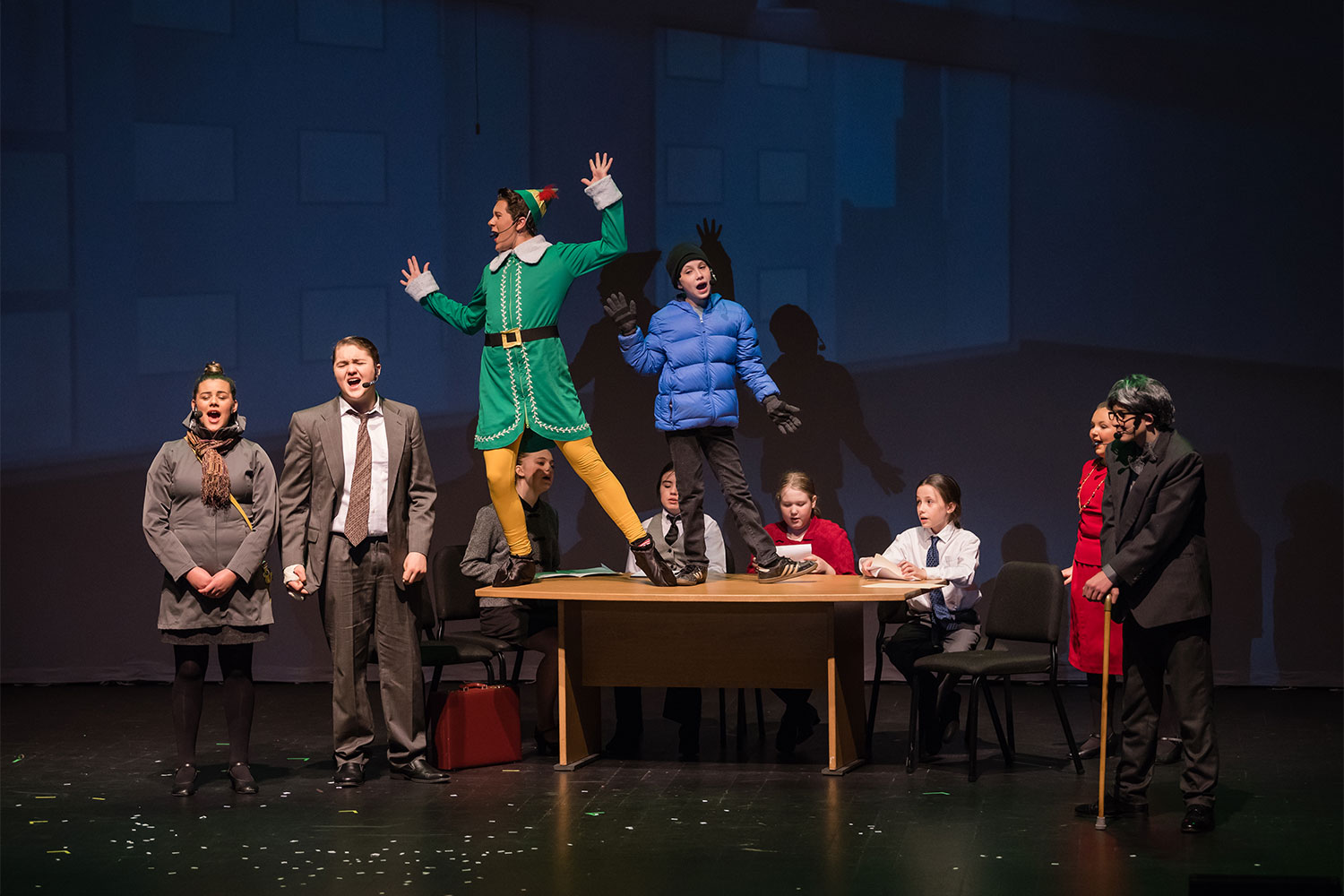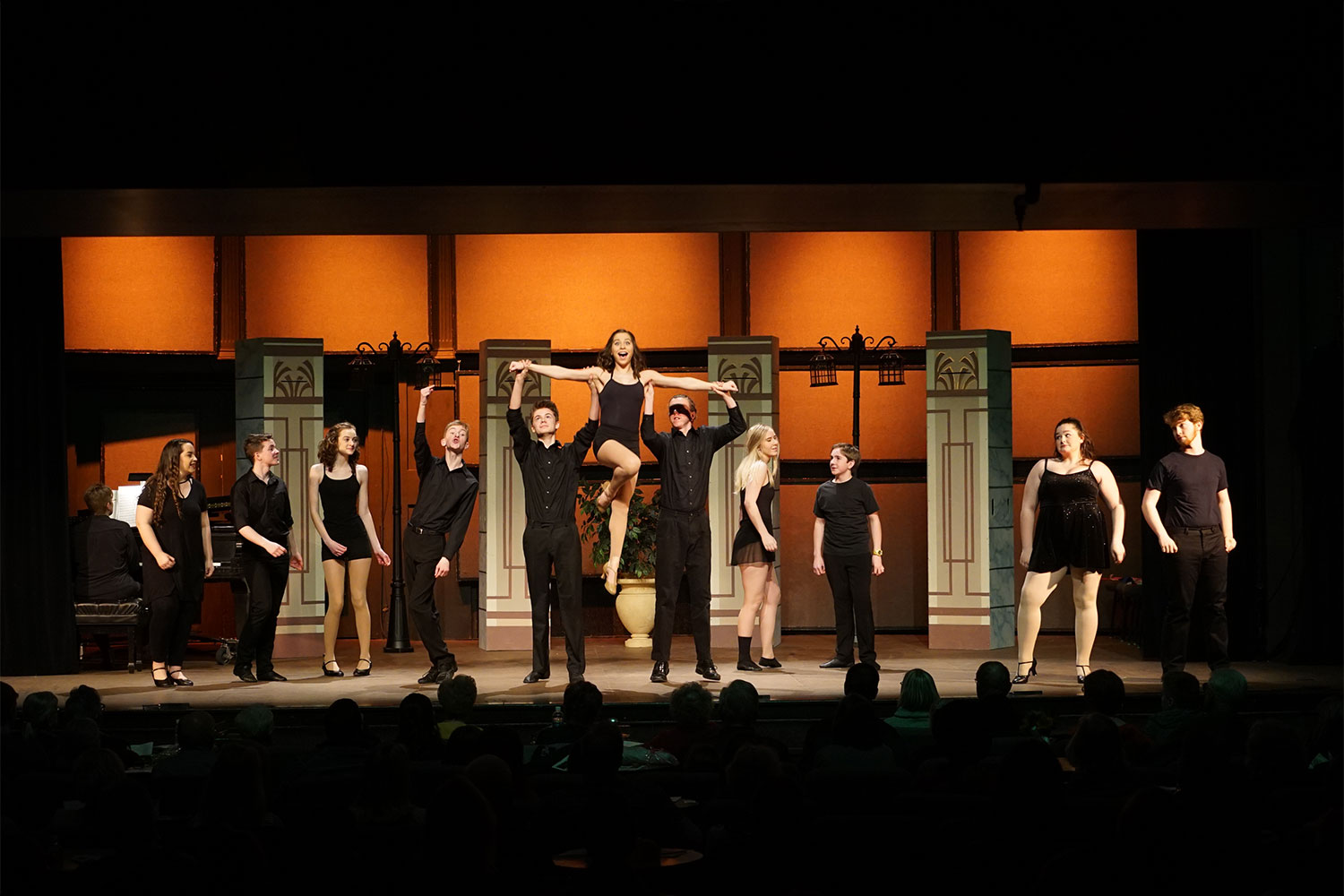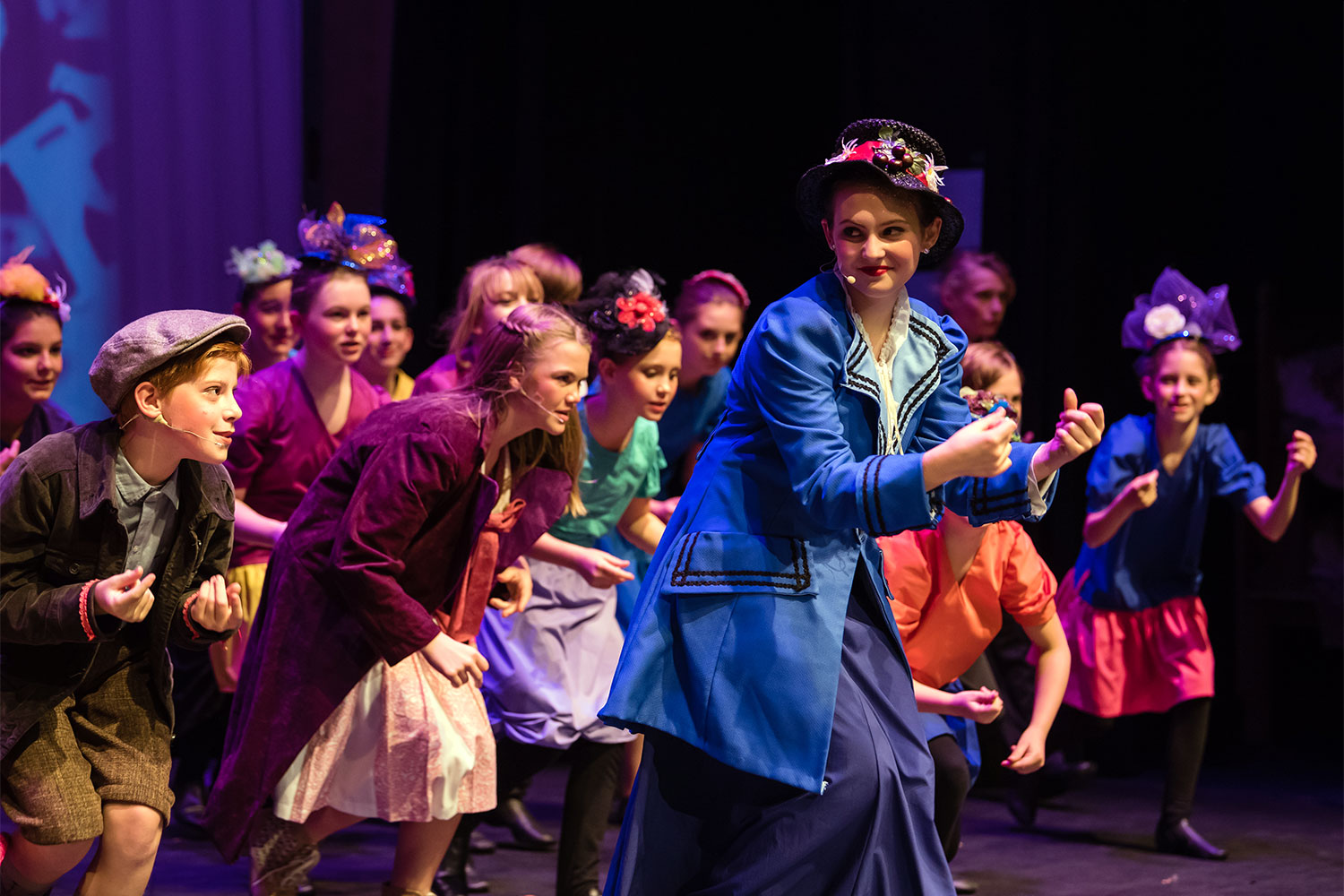I often feel like I live in my car. Hundreds of miles in a dusty sedan littered with granola-bar wrappers and the sweaty water bottles of absent-minded children. Hostile demands for the soundtracks to Hamilton or Waitress are usually the only greeting I get when picking them up from school, and then it’s off to the races.
Soccer practice for the oldest, followed by guitar lessons, dance, knitting — and then there’s theater. Most of their activities are only one day a week. Even soccer, which elicits a few grumbles when there’s a tournament, doesn’t compare to the agony of being part of a full-length musical production.
Yes, it’s true: Few things are as demanding as theater life. Yet plenty of dedicated parents and faithful instructors know that few things are as worth the caffeine-induced effort. The schedules are grueling, the productions are almost always underfunded and understaffed, and — given the ages of the main players — rehearsals tend to look like herding cats with tiny bladders.
Seriously, try drawing feline whiskers on a wiggling 8-year-old.
Fortunately, Eugene is home to three incredible youth arts programs: Rose Children’s Theatre, Upstart Crow Children’s Theatre and the John G. Shedd Institute for the Arts. All three organizations empower and nurture our youngest and most vulnerable citizens through their own unique perspective and experience of theatrical arts.
Recently I had the privilege of sitting down with members and students from each of the organizations, all of whom graciously shared with me the joys and struggles of children’s theater. I was surprised how different these three houses were, and yet none of them disagreed on the endless value of the arts for children, and the lasting benefits for them as instructors, the students and our community.
After we briefly commiserated over the long nights spent hammering and painting, sewing and chauffeuring, Andy McNamara, board member and longtime parent volunteer of Rose’s Children’s Theatre, shared with me his perspective as a loving father of two Rose veterans and, more recently, as part of the inner workings of the company.
Founded by Celeste Rose in the late 1970s, and becoming a nonprofit in 1989, Rose Children’s Theatre has grown by leaps and bounds, McNamara says. Producing at least four musicals a year, most of which are performed at the Wildish Community Theater in Springfield, Rose has several artistic directors on staff, including choreographers, voice coaches and, of course, parent and student participation.
As a father, one of the things McNamara appreciates is the way children’s theater exposes kids to life in all its variety. “To watch them interact,” he says, “they learn about different personalities. Meeting new people of different backgrounds — it’s such a valuable skill in life.”
He notes the difficulty of managing some of the larger productions they’ve taken on; after all, young thespians don’t always have the greatest attention spans, directors aren’t always patient and parents often forget (or are simply unaware of) the enormous effort needed to make one very famous British nanny fly.
The RCT staff understands that, as the theater continues to grow, it must also make the process smoother for everyone. In addition to big musical productions, RCT offers classes to help guide youths artistically.
From the obvious voice lessons to instructions on how best to take a head shot, the theater is committed to helping its students evolve their talent and passions beyond childhood and adolescence, with several of young theater-types going on to pursue the arts professionally.
McNamara’s 12-year-old daughter, Tilly, is a bubbly veteran of Rose Children’s Theatre. With several productions under her belt — Shrek being her favorite (who wouldn’t love being on stage with a dragon?) — Tilly expressed to me her love of theater and, more importantly, the community of friends and family around her. She says she especially loves the dancing and the choreography involved in the productions.
She acknowledges the special bonds that are made when taking part in something that can be arduous yet inexplicably magical.
This idea of community that Tilly energetically speaks about is the soul of the performing arts.
Enlarge

I witnessed that community firsthand in a small office upstairs at Upstart Crow Studios surrounded by a handful of the women responsible for making the wheels go round at the fast-growing underdog theatre (with the most infuriating parking lot in the Whiteaker).
Co-founded by the late Euralee Smith in early 2000, Upstart Crow, began by “working in humble, nomadic ways,” as Smith used to say — performing in school gyms, church basements, private studios and retirement community centers — to provide a place for the everyday child to experience the wonder of theater. It’s clear the studio is still mourning its beloved leader, who passed earlier this year and about whom a whole article could be written.
Director of the upcoming Elf the Musical Jr., Jackie Beyers, a veteran and student of theater, along with artistic director and longtime parent volunteer, Heidi Knight Meigs, shared with me the excitement and anxieties of being involved in children’s theater.
While filling the big shiny multitasking shoes of Smith has proven to be a challenge, this loving and persistent community of primarily women has undoubtedly risen to the challenge of providing an inclusive and creative space for all children.
In addition to the larger productions involving angsty mermaids, Upstart Crow offers theatrical classes for students starting as young as age two. Talk about herding cats. Many of its classes offer opportunities for children to cultivate the ability to perform as well as to create for themselves. One of its students even wrote and directed a production.
Likewise, one of Upstart Crow’s highlights is its Stage Door performance troupe. You can often find these self-proclaimed theater nerds out in the community raising money and spreading their love of the arts. Like most if not all community theater, Upstart Crow relies heavily on donations from the public.
While most of the performances are held in the small theater out back, the bigger productions from Upstart Crow have, in recent years, been outsourced to the Hult Center. With limited spacing available, bigger venues are an expensive necessity.
Enlarge

Home to Eugene’s own cultural arts center since the mid 2000s, The Shedd houses two performance venues: Sheffer Recital Hall, originally a chapel, and the larger Jaqua Concert Hall, which has also been repurposed from the original sanctuary it once was.
While The Shedd offers classes and performance opportunities for all ages, it also provides a uniquely educational and developmental experience for younger performers, including the Magical Moombah, a musical vaudeville for children performed a few times a year.
Co-founders James and Ginevra Ralph emphasize the importance of teaching theater through a historical and cultural lens that encourages students to be lifelong participants in the arts.
Like many of these venues, The Shedd is also painfully aware of the numerous barriers children face in the performing arts, including financial restrictions, limited access to the right instruments and instructors, as well as general performance issues regarding access and opportunity.
The Shedd makes it clear that it addresses these issues head-on from an early age. For example, its Music Box class introduces young kids to different instruments and structured pretend play that allows for kids to experience the arts without the pressure.
In trying to sum up the invaluable contribution children’s theater brings to our community, James Ralph says it best: “We want to create cultural ninjas, generosity of spirit. How do we get them empowered? To see their truth and beauty in right and wrong.”
Children’s theaters in Eugene provide opportunities for any kid to be a part of an artistic culture, teaching them how to treat one another with kindness, compassion and respect. In a continually divisive world where otherness is condemned, theater celebrates it.
Moreover, theater isn’t necessarily for the bright, bold singers and actors of the world, though it can be. When asked about a specific moment that was special for them, nearly all of the instructors and parents I spoke with brought up a time in which a particularly shy child — a child you might expect to run from a stage — overcame his or her fears in front of an audience.
Beyers at Upstart Crow says that “watching kids come out of their shell, and blossom, to create a story together, it’s magic.” For her, even the youngsters in the audience, watching their peers perform, carry a sort of magic. “Kids seeing kids on stage, even the audience is empowered,” she says.
True empowerment is not confidence, but rather a belief in one’s self and in each other, which is utterly unique to theater.
I decided to ask my own daughter, a newcomer to the stage, what she loved about theater. To my surprise, her answer had nothing to do with the costumes, the music or the elaborate sets.
She simply said: “Anyone can do it, because it makes you believe that you can.”
To support our local children’s theaters, you can visit their websites to see how you can donate, buy tickets, volunteer and register for classes and productions: Rose Children’s Theatre at rosechildrenstheatre.org; Upstart Crow at upstartcrowstudios.org; and The Shedd at theshedd.org.
